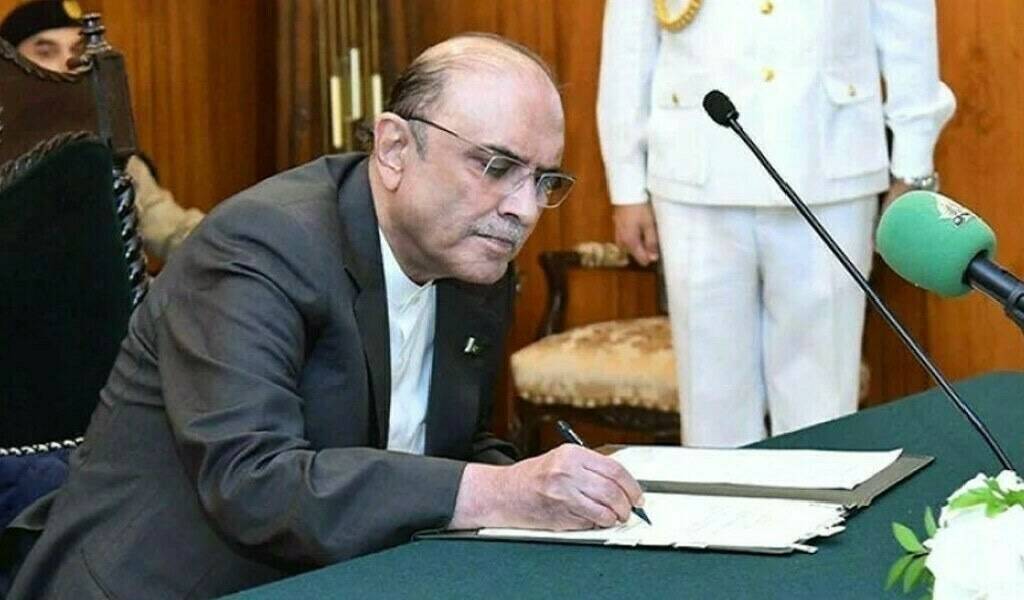President Zardari
President Asif Ali Zardari has exercised his veto power on a bill that mandates the registration of madrasahs (religious schools) in Pakistan, citing concerns over the potential negative impacts on both the country’s international standing and internal stability.
In a statement detailing his objections, Zardari expressed his belief that implementing the bill could invite international criticism, particularly affecting Pakistan’s relationship with global organizations like the Financial Action Task Force (FATF).
He warned that the registration process could potentially harm Pakistan’s international image, especially given the current scrutiny the country faces over counterterrorism and money laundering efforts.
Zardari also pointed to a possible conflict of interest embedded in the bill’s provisions, suggesting that it could lead to unintended consequences.
He referenced the Madrasah Education Board Ordinance of 2001 and the Islamabad Capital Territory Trust Act of 2020, both of which already address issues related to madrasah regulation, questioning the need for new legislation when existing laws cover similar ground.
In his view, the bill introduces unnecessary redundancy, which could create confusion and overlap with the established legal framework.
Another significant concern raised by President Zardari is the bill’s inconsistent definition of the term “madrasah” and its lack of clarity regarding geographical applicability.
He noted that the Societies Registration Act of 1860, which is already in force in Islamabad, does not explicitly acknowledge madrasahs. This omission raises concerns about the bill’s legal cohesion and its potential to cause confusion in its application across different regions.
The absence of clear guidelines on the geographical scope of the bill further complicated matters, according to the President.
Furthermore, Zardari warned that mandating the registration of madrasahs under the 1860 Act could inadvertently lead to their misuse for purposes other than education.
The bill’s provisions could allow multiple madrasahs to operate under a single registered society, which might exacerbate sectarian divisions and lead to a disruption in public order.
The President expressed concerns that this approach would only worsen existing tensions and potentially undermine the country’s efforts to maintain social harmony.
He concluded by emphasizing that the preamble of the 1860 Act makes no reference to madrasahs, creating a contradiction with the new bill’s focus on religious education.
I am a dynamic professional, specializing in Peace and Conflict Studies, Conflict Management and Resolution, and International Relations. My expertise is particularly focused on South Asian Conflicts and the intricacies of the Indian Ocean and Asia Pacific Politics. With my skills as a Content Writer, I serve as a bridge between academia and the public, translating complex global issues into accessible narratives. My passion for fostering understanding and cooperation on the national and international stage drives me to make meaningful contributions to peace and global discourse.










